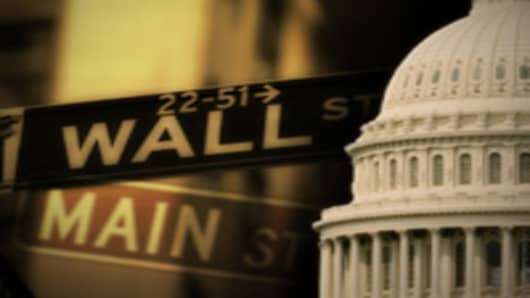It still looks like second quarter GDPwill be better than the first quarters 2.7% rate, but I have been expecting a softer second half and I won't be disappointed.
The lapse of the government stimulus program will act as a form of tightening.
By the second half any uplift from inventory rebuilding will also have passed.
I do think hours worked and length of workweek will lead to higher incomes and that will carry the day.
But the risk is on the downside.
No enlightenment regarding the odds of a double dip comes from Europe. The London Telegraph said in a article that "Warning lights of a double dip recession flash brightly across the world."Nice headline.
But the Financial Times (my favorite) warns against "jumping on the double dip bandwagon just yet". Further analysis is not really helpful. The headlines say it all and the conclusion is who knows/time will tell. The bond market yields, the 2 year at .6% and the 10 year below 3%, are troubling and aren't predicting a whole lot of growth.
Some good news came out of Europe overnight.
When the crisis hit, the European Central Bank did the right thing and provided credit lines for their banks. Some EU442 billion was borrowed and is due to be paid back Thursday. Believe it or not that was a year ago and now the ECB will loan only three month paper. The market was anxious that the banks would roll the whole thing with the ECB and none with each other which would show there was no confidence within the system. If banks won't lend to one another on an overnight basis normal businesses have no access to credit at all. Thankfully, EU132 was rolled with the ECB and the rest inter-bank. These results are better than had been hoped for and indicates some improvement in the European credit markets.



